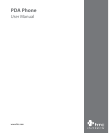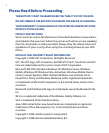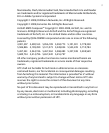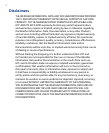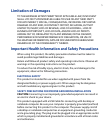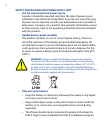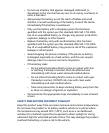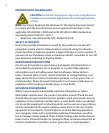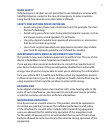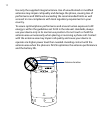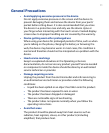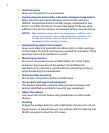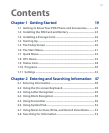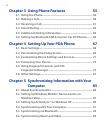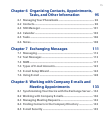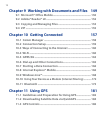7
• Do not use a battery that appears damaged, deformed, or
discolored, or the one that has any rust on its casing, overheats, or
emits a foul odor.
• Always keep the battery out of the reach of babies and small
children, to avoid swallowing of the battery. Consult the doctor
immediately if the battery is swallowed.
• Only use the battery with a charging system that has been
qualified with the system per this standard, IEEE-Std-1725-2006.
Use of an unqualified battery or charger may present a risk of fire,
explosion, leakage or other hazard.
• Replace the battery only with another battery that has been
qualified with the system per this standard, IEEE-Std-1725-2006.
Use of an unqualified battery may present a risk of fire, explosion,
leakage or other hazard.
• Avoid dropping the phone or battery. If the phone or battery
is dropped, especially on a hard surface, and the user suspect
damage, take it to a service centre for inspection.
• If the battery leaks:
• Do not allow the leaking fluid to come in contact with skin
or clothing. If already in contact, flush the affected area
immediately with clean water and seek medical advice.
• Do not allow the leaking fluid to come in contact with eyes.
If already in contact, DO NOT rub; rinse with clean water
immediately and seek medical advice.
• Take extra precautions to keep a leaking battery away from fire
as there is a danger of ignition or explosion.
• Communicate the appropriate steps immediately in case a hazard
occurs.
SAFETY PRECAUTIONS FOR DIRECT SUNLIGHT
Keep this product away from excessive moisture and extreme temperatures.
Do not leave the product or its battery inside a vehicle or in places where
the temperature may exceed 60°C (140°F), such as on a car dashboard,
window sill, or behind a glass that is exposed to direct sunlight or strong
ultraviolet light for extended periods of time. This may damage the product,
overheat the battery, or pose a risk to the vehicle.



